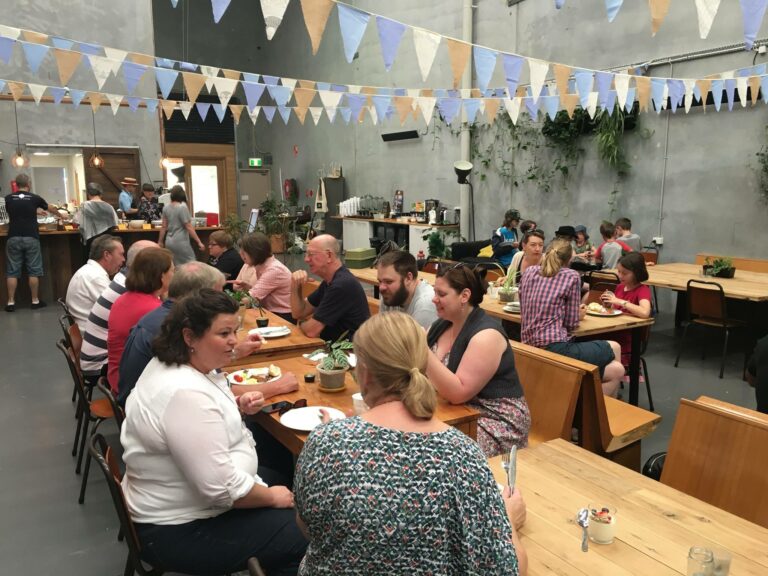Here’s an excerpt from our interview with Soul Revival, whose leader Stuart Crawshaw and his team, build their health and vitality through initiatives such as this.
Read the conversation below.
SC: I think Christians are sometimes trying to see what’s happening in culture, adjust to it, and then by the time they’ve worked that out, it’s already moved. And so, I think having young people talking to us about, what does it mean? What is a Snapchat? Finding out about Snapchat from our young people rather than from a conference or a book from America, means that we can actually adjust quicker to stuff.
So, we were also trying to encourage young people that we can, as Australians, we can come up with new strategies for ministry at the grassroots. So, we give permission, we’re permission-givers for new approaches. So, our take on that is that we have a reformed evangelical theology, and that isn’t going to change. We’re going to not experiment with our theology, but we are going to experiment with our strategy and with our practice. So, that gives a lot of permission for young people to say things like, why do we do it this way?
Why don’t we try this? And we’ll say, well, the reason we do it theologically is this, and our tradition and this, and it’s not to say that all tradition isn’t worthwhile. But some traditions are just an enculturated form of the gospel that aren’t necessary. It took the Anglican Church a long time to work out what to do with robes, and debate continues, really, in some areas, but in our area, in Sutherland Shire, we don’t wear robes anymore, but it did take a couple of decades for that to go through.
So, my thought was, it’d be better if we could try and have that conversation in a smoother way, and let young people have more input into the church. So, even the way we set up our church here, the young people designed this and set it up, we didn’t do it, as middle-aged people. And usually, it’s the other way around when there’s a church development.
NCLS: Innovation is obviously a key driver, openness to new possibilities, how do you handle the innovator’s life? The entrepreneur’s life of trying and failing or the failing?
SC: I think it’s fun to reinvent yourself regularly, and I think, literally, culture changes every five years in our culture, so we’re open to changing constantly; changing our practice, and even relooking at our strategy. Although our strategy has stayed the same over the last 30 years, which is an intergenerational countercultural ministry that doesn’t attempt to be like the world.
NCLS: So, how do you do change management if you’re asking people who tend not to want to change, how do you do that?
SC: I think we’re changing community, and we’re changing conversation, and we’re really transparent as much as we can, and we talk about new ideas. New ideas come from both the front and from the congregation.
For example, our caravans, I didn’t think of that, it was two ladies in the church who thought of that. And so, we actually practice what we preach and we allow new ideas to be considered if they fit with our theology and our strategy.










